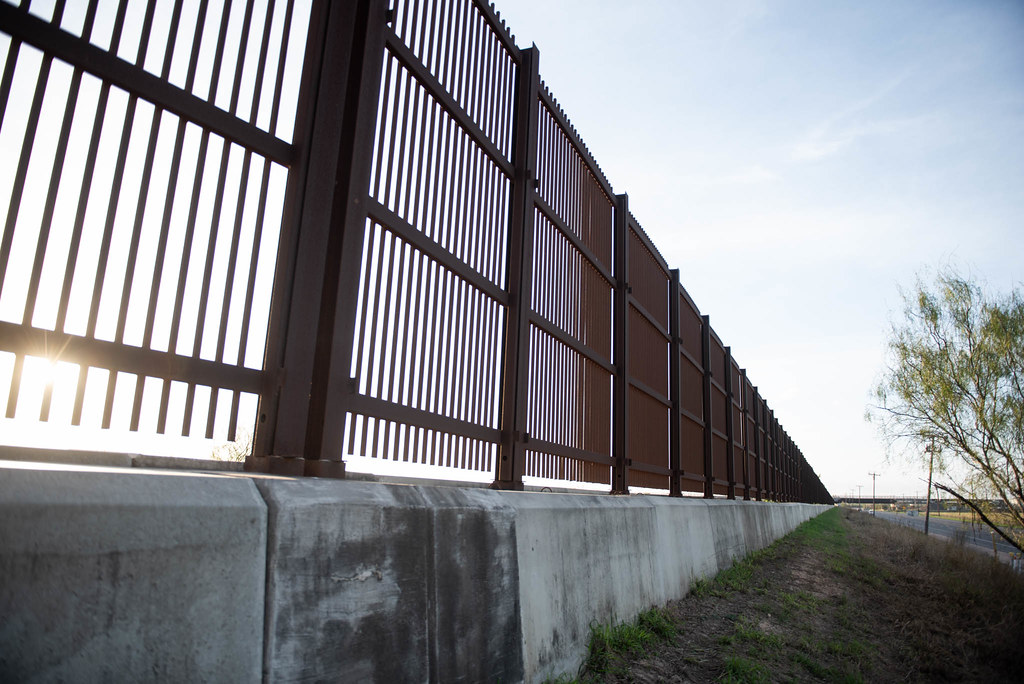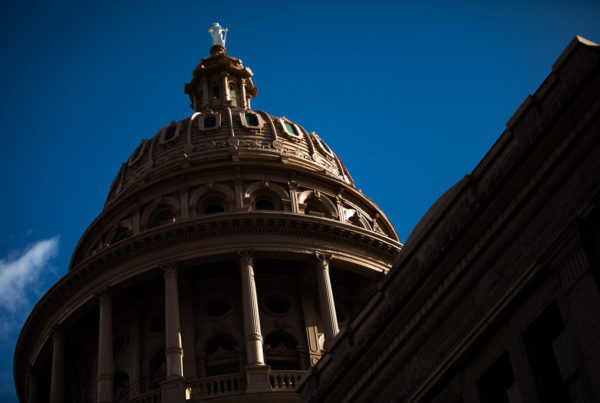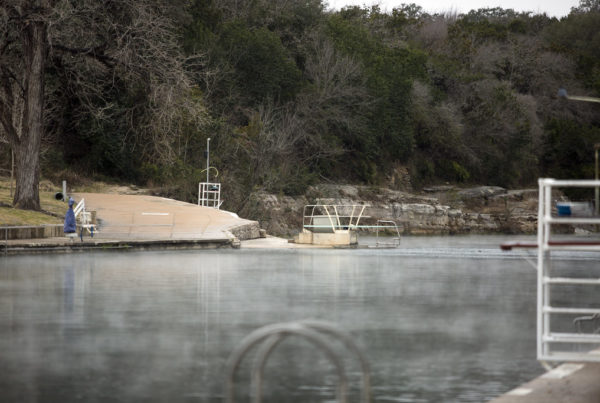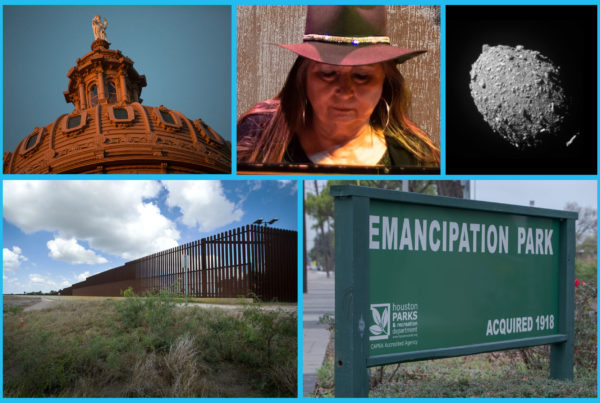When it came to this year’s news from the Texas-Mexico border, Operation Lone Star – the border security operation by the Texas National Guard launched in September 2021 – was front and center. For the entirety of 2022, thousands of troops were stationed along the border with the goal of stemming the flow of people and drugs coming in from Mexico. But the mission has not been without its hurdles.
For more on the trajectory of Operation Lone Star, the Standard spoke with Davis Winkie, a reporter for the Military Times.
This transcript has been edited lightly for clarity:
Texas Standard: How does this operation look now as we sit here at the end of the year, compared to where it was at the beginning?
Davis Winkie: It’s a night and day difference when it comes to how it’s running now. Back at the beginning of the year, this was a mission that had rapidly expanded in the months preceding and was still having a lot of growing pains when it came to basic things like getting service members paid, improving their living conditions, making sure that everything was set for them to be able to focus on the jobs that they were ostensibly there to do.
Along the way, that’s meant some slimming down. The mission has slowly drawn down its troops from a high of around 6,500 that were actually down there on the border. We’re looking at a force that’s probably somewhere in the mid to high 4,000s. Now, though, the Texas Military Department doesn’t like to advertise how many are actually there.
How has the presence of National Guard troops changed the complexion of the border now that they’ve been there for a year and a half?
It’s really hard to say what direct impact they’ve had. My colleagues at the Texas Tribune have taken a really interesting look at apprehension data by Border Patrol, because virtually all migrants encountered by Texas National Guard service members actually end up getting processed by Border Patrol rather than arrested and put into the state criminal justice system, like the governor prefers people to think happens.
There hasn’t really been that much of an impact. There’s actually been a slight increase in the number of apprehensions. It’s hard to say the way that the Texas National Guard has actually impacted that, other than what we can see visibly with the construction of some areas of fencing, some areas of shipping container wall, and overall a more visible militarized presence down there along the Rio.
You’ve spoken to a number of troops who are stationed in South Texas as a part of the operation. Can you give us a sense of their experiences?
For the ones who were involuntarily mobilized last fall, taken away from their civilian lives — because most guard members typically only serve part-time — it was a really difficult year. A lot of them were asked to put everything down on short notice and say goodbye to their families, depending on how far away they lived, and say goodbye to their employers, to their professors. That resulted in a lot of personal and emotional hardship for a lot of people.
But the ones who are still there are kind of at the acceptance phase. They understand that the governor can call them to duty when he deems fit. What’s happening at the border certainly requires something from someone, though I’ll leave it to the politicians to debate what. There’s this sense of acceptance that’s kind of set in. You know, they are here to do this mission. As time wears on, more of the people who are remaining on the border are actually folks who have opted to stay there because the pay is pretty good for an 18-year-old kid if they’re able to maintain their other responsibilities while away from home.
You mentioned that the politicians were involved, and we’re just weeks away from the Legislature meeting. This is the first time they will have done so since the start of Operation Lone Star. Do you get the sense that state lawmakers are going to weigh in on this in the spring, or is the future of the operation more or less in Gov. Greg Abbott’s hands?
When it comes to the operation itself, the only checks that exist on a governor’s power to deploy their National Guard under state authority is the power of the purse. However, I wouldn’t expect to see the Legislature force the governor to scale back any of his border security efforts, given how well the issue plays politically for hard liners in Texas. But when it comes to the troops themselves, when it comes to the things they’ve experienced, the gaps in benefits that they’ve been suffering from, you’re going to see a lot of legislative action.
We wrote about one proposed law, the Bishop Evans Act, which would add Texas National Guard personnel on state duty to the state’s first responder death benefit program. Because, believe it or not, they’re not covered when they die in the line of duty by any death benefit right now. So, there’s one thing where we’ll see some action. The Texas Military Department has also indicated through its budget request documents that it’s really going to push hard to see some benefits that were previously cut, like state tuition assistance to help Guardsmen go to college.
They want to see that budget restored. It had been cut in the previous session. They want to see a sharp increase to mental health resources funded through the state’s general revenue fund. So, a lot of their legislative priorities are shaped by the experience that they’ve had on Operation Lone Star. But when it comes to reining in the mission itself, I just don’t know if there’s a legislative appetite for that.
Are there any clues about the future of the mission in terms of when or if it might end?
You know, it’s always hard to say with these kinds of things. I would keep a really close eye on the end of Title 42 internally within the Texas Military Department and seemingly within the governor’s mansion. They see the pending end of Title 42 as something that could result in a tidal wave of attempted crossings down at the border. There’s concern that ending Title 42 could result in a need for more forces down there. But I just don’t know. I don’t know what the future of the border crisis is and what impact that will have on the state’s response.










